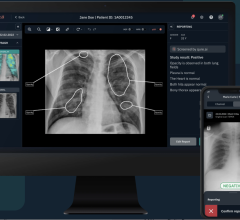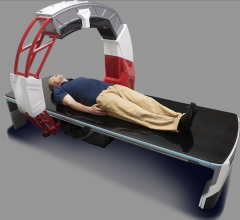
Philips CT reduces reconstruction times from minutes to seconds using the latest Intel Xeon processors and optimized algorithms.
When every second counts in clinical situations such as those encountered in the emergency room and trauma centers, fast high-resolution CT scanning at low radiation dose helps radiologists render quick, confident diagnoses while keeping in mind the patient's needs. Delivering speed and performance, Philips iDose4 generates results in seconds rather than minutes, with a majority of reference protocols reconstructed in 60 seconds or less. Moreover, the Metal Artifact Reduction for large Orthopedic Implants (O-MAR) reconstruction technology reduces artifacts from metal objects, thus reducing the potential loss of critical anatomical information.
Philips has taken CT scanning to a whole new level by developing medical imaging technologies that combine fast reconstruction, high image quality and low radiation dose. This advancement was brought about by Philips collaborating with Intel to enhance its imaging software to take advantage of state-of-the-art, massively-parallel computing platforms based on Intel Xeon processors.
This paper details the high performance derived from Philips reconstruction technologies: Philips iDose4 and O-MAR. Some of the software optimization techniques used by Philips engineers are also described. As a next step in transforming care, Philips has launched the next innovation, called IMR. IMR is a model-based iterative reconstruction, which will run on even more powerful Intel processors and pave the way for further advances in CT imaging.

 Click here to download the white paper.
Click here to download the white paper.
 August 09, 2024
August 09, 2024 








